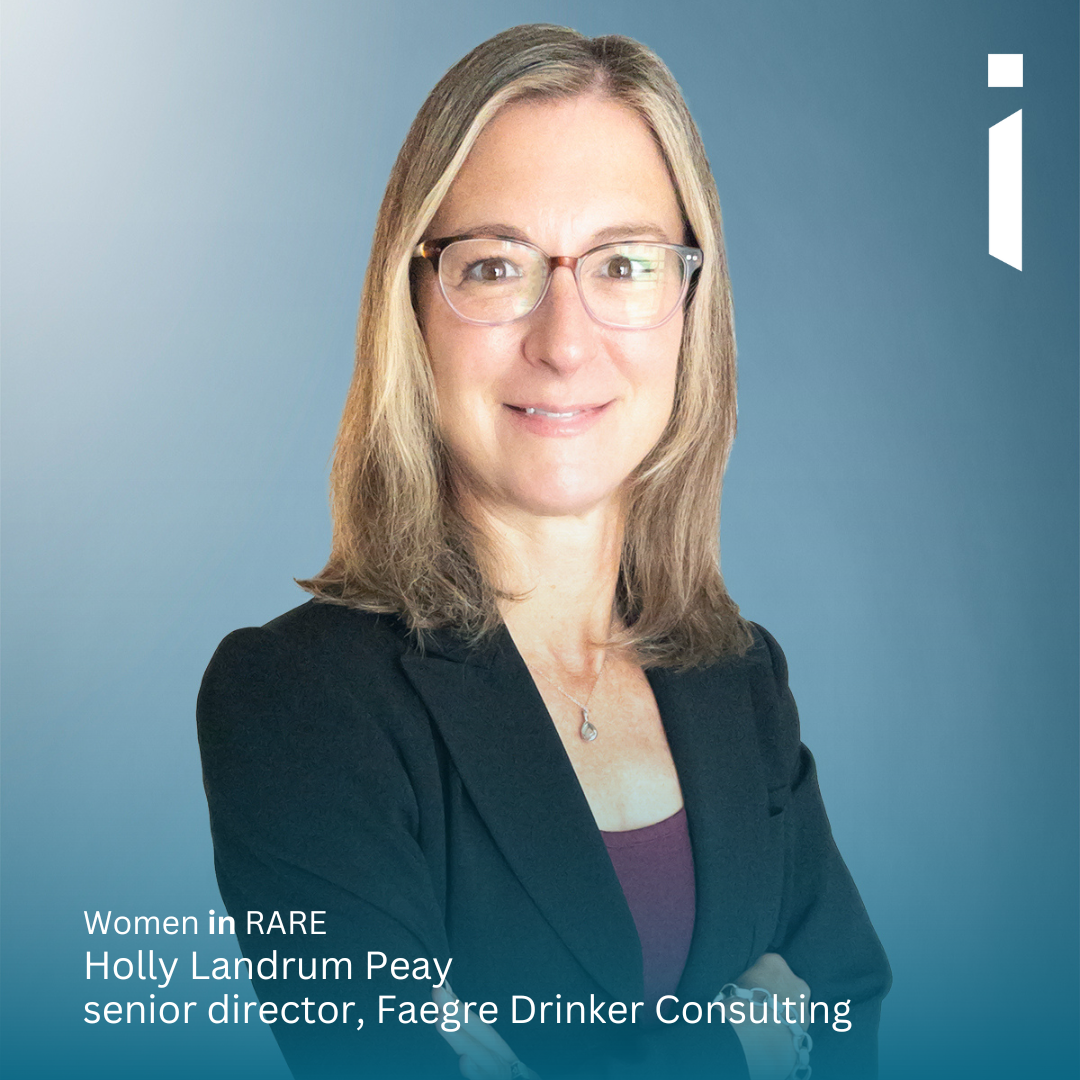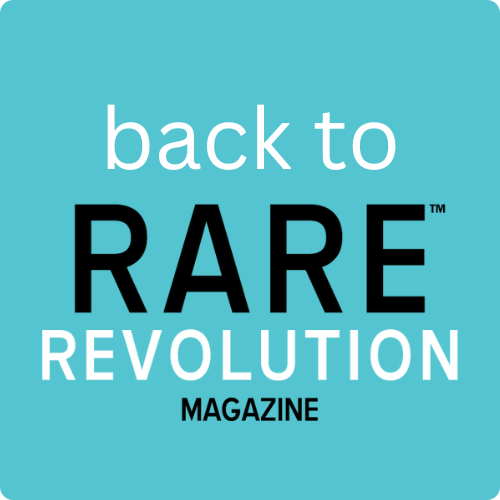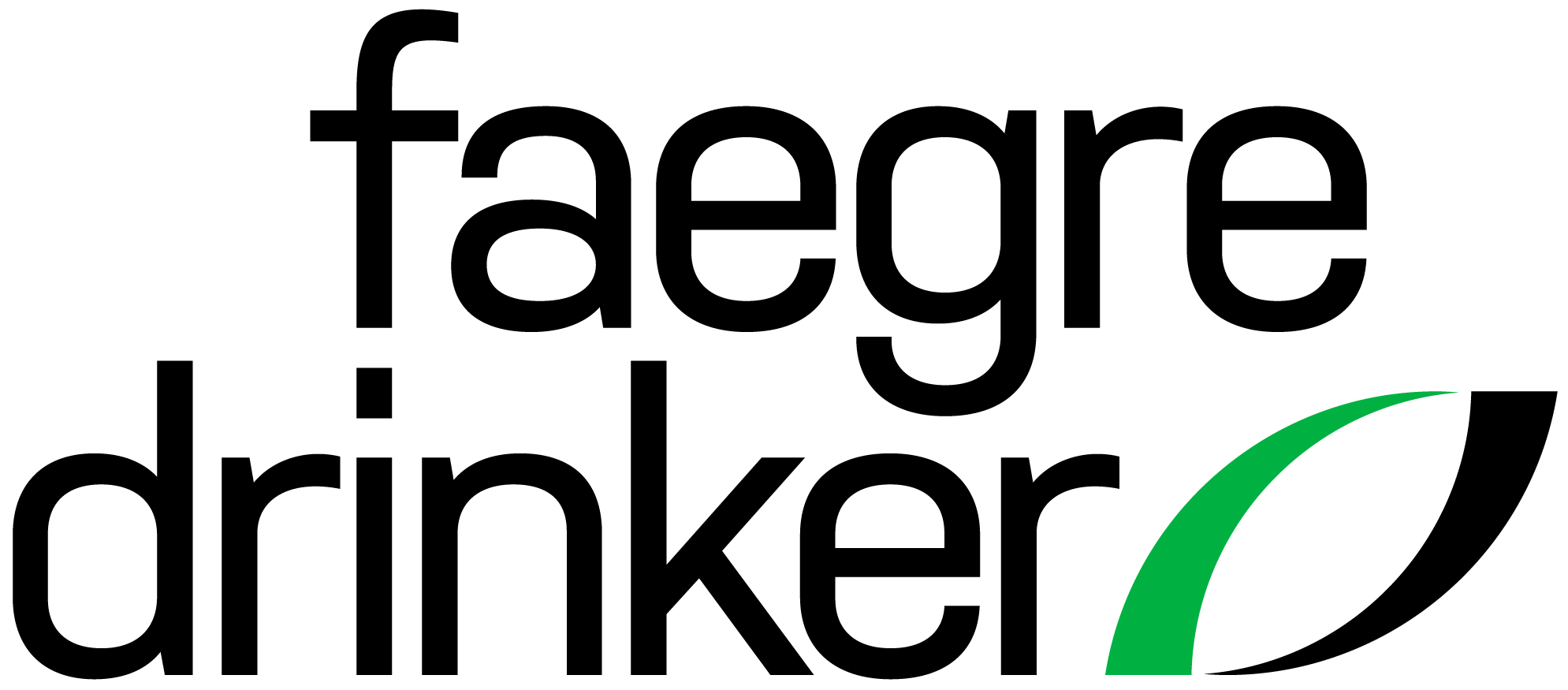Holly Landrum Peay of Faegre Drinker Consulting
Estimated reading time: 5 minutes

“I was motivated to my current career path by a long-standing awareness that the ‘end user,’ whether for an intervention, an educational product, a new therapy or a patient-reported outcome measure, must be the central focus of the endeavour.”
I began my career as a Masters-level genetic counsellor with an undergraduate degree in bioethics. I worked in genetics education and psychiatric genetics. I transitioned to the NIH Intramural Program as associate director of the genetic counselling training programme and conducted research related to genetic risk perception and adaptation.
My enthusiasm for research grew and I ultimately returned to a PhD programme focused on patient and caregiver preference and experience research in Duchenne muscular dystrophy. Concurrently, I was a senior vice president at Parent Project Muscular Dystrophy. My next position was at RTI International, where I led patient preference, experience and consent research and the Early Check newborn sequencing study.
I recently transitioned to Faegre Drinker Consulting, where I am a senior director. I provide fit-for-purpose community engagement, patient experience research and intervention development to enhance patient-centeredness of therapeutic products, clinical trials, clinical decision making and regulatory decision making.
What motivated you into your chosen career path?
I was motivated to my current career path by a long-standing awareness that the ‘end user,’ whether for an intervention, an educational product, a new therapy or a patient-reported outcome measure, must be the central focus of the endeavour. This led me to learn community engaged research approaches, user centred design, strategic qualitative and quantitative research methodologies and decision support approaches that maintain the end user (often a person living with a condition or a caregiver) as the primary focus of the work.
What do you see as some of the opportunities as a woman in your field?
In my experience, women are welcomed and often have leadership roles in the social sciences, and to a somewhat lesser extent, in clinical and public health translational research. While I have many exceptional male colleagues, I’ve found that women more readily take to deep engagement approaches and to research that is laser-focused on the needs, preferences and experiences of people living with a health condition.
I’ve also had several exceptional female mentors and increasingly find that women are taking advantage of mentoring opportunities and themselves mentoring more junior colleagues.
Finally, many of the professional organisations relevant to my work are recognising the contributions of female professionals, promoting outstanding work regardless of the gender of researchers and enhancing opportunities for networking.
What are some of the barriers to success as a woman in your field?
The barriers that I’ve experienced or observed include the age-old challenges of males diminishing or taking credit for their female colleagues’ progress and more subtle power-play behaviours such as talking over women or literally moving them to the fringes in group situations.
Further, many young female professionals need ongoing mentorship about appropriately advocating for themselves in day-to-day professional situations and in position and salary negotiations.
But happily, I’ve been fortunate to work with many women who have been highly successful, even when faced with barriers.
What is one piece of advice you would give your 10-year-old self?
I tend towards perfectionism and would advise my 10-year-old self to maintain high standards (this has served me well!) but focus more on the big-picture without so much angst about the small stuff. Second, I would encourage my younger self to practice small acts of self-promotion, without embarrassment or reservation.ve freedom, independence and make my own choices.
Can you tell us about your current work priorities and focus or a particular project you are working on?
Most, but not all, of my community engagement, patient experience research and intervention development is in rare disorders. I have a particular affinity for rare conditions and the challenges and opportunities that arise in rare condition research. My favourite studies are those conducted in collaboration with patient organisations. Below are examples of recent or ongoing work.
1. I am conducting a study in collaboration with an advocacy organisation to obtain nuanced data, both qualitative and quantitative, from a subgroup of their rare disease population regarding risk associated with gene therapy. The data is important for their own community education and outreach and has immediate relevance to sponsors and regulators.
2. For a biopharmaceutical company, I’m developing a patient-focused treatment decision aid that offers balanced education about all available treatments within a treatment class for the indication.
3. To inform outcome measure selection, I’ve examined symptom impact and existing patient-reported outcome measure meaningfulness and validity in a range of rare and common conditions.
4. For a biopharmaceutical company, I’m conducting a patient experience study to understand critical unmet needs and willingness to participate in a potential clinical trial for a rare condition that has no FDA approved drugs or biologics.
Connect with Holly
Women in RARE is a celebration of women working in the RARE space in science, research, industry and advocacy. To access more Women in RARE articles click below.


